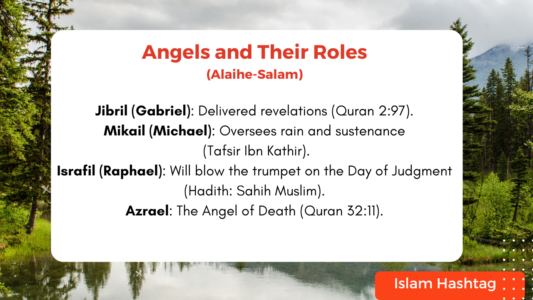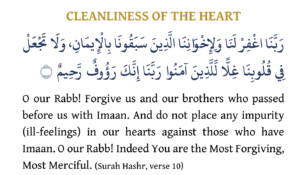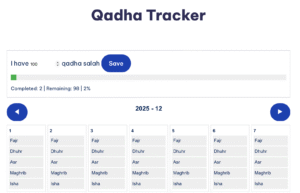Angels in Islam: Belief in the Unseen
Belief in angels is one of the fundamental articles of faith in Islam. It is mentioned in the Quran as part of the six pillars of Iman (faith), and acknowledging their existence deepens our understanding of Allah’s power and wisdom. The angels remind us that we are never truly alone; they are constantly watching over us, recording our deeds, and glorifying Allah.
Ramadan Offer
What are Angels in Islam?
Angels in Islam are spiritual beings created by Allah from light. They do not have free will and are dedicated entirely to serving Allah by carrying out His commands. They perform various roles such as delivering revelations, guarding the believers, and recording deeds
In the vast universe that Allah has created, one of the most awe-inspiring and essential elements of our faith are the angels, known as mala’ika in Arabic. These unseen, powerful beings play a pivotal role in the divine plan, carrying out Allah’s commands with utmost precision and dedication. They are not beings that we can see with our eyes, yet their influence and presence are deeply interwoven into the very fabric of Islamic belief and practice. As Muslims, understanding the nature, roles, and significance of angels is crucial to deepening our faith and connection with Allah.
Angels are mentioned frequently in the Quran and Hadith, and their roles extend far beyond what we might imagine. They act as messengers, protectors, recorders of deeds, and even caretakers of the heavens and earth. In this article, we will explore the world of angels in Islam, answering common questions and delving into their roles and responsibilities based on authentic sources from the Quran and Hadith.
The Creation of Angels by Allah
Angels are created by Allah from light unlike humans or jinn, who are created from clay and fire respectively, angels are beings who are free from desire or imperfection. The Prophet Muhammad (peace be upon him) explained their creation succinctly:
“The angels were created from light, the jinn from smokeless fire, and Adam from what has been described to you.” (Sahih Muslim, 2996)
The Quran also describes them as beings created to serve Allah’s commands without question. They are incapable of disobedience, reflecting Allah’s absolute control over creation. Their essence and purpose are rooted in worship and obedience.
The Nature and Appearance of Angels
While angels are invisible to human eyes, the Quran and Hadith provide descriptions that give us a glimpse into their magnificent nature. Allah tells us that angels are beings of great beauty and power. In Surah Fatir, Allah states:
“Praise belongs to Allah, the Bringer-into-being of the heavens and the earth, the Maker of the angels into messengers, possessing wings—two, three, and four. He adds to creation in any way He wills. Allah is over all things powerful.” (Quran 35:1)
The number of wings varies from angel to angel; some have two, others have three, four, or even more, as seen in the case of Jibril (Gabriel), who had 600 wings, each one extending to the horizon. The Prophet Muhammad (peace be upon him) described his encounter with Jibril during the Night Journey (Isra and Mi’raj), where Jibril’s wings spanned so widely that the Prophet could not even comprehend their extent.
Angels, as created beings of light, also have the ability to assume different forms. For instance, Jibril, who frequently delivered messages to the Prophets, sometimes appeared as a man, and at other times, his true form was so awe-inspiring that it filled the space between the heavens and the earth.
Roles and Responsibilities of Angels
- Messengers of Allah
The most well-known role of angels in Islam is their responsibility as messengers. The Quran mentions several angels tasked with delivering Allah’s messages to various Prophets. Among them, Jibril (Gabriel) is the chief messenger, entrusted with delivering the Quran to the Prophet Muhammad (peace be upon him). Allah states:“Say, ‘Whoever is an enemy to Jibril—it is none but he who has brought it [the Quran] down upon your heart, by Allah’s will, confirming what was before it and as guidance and good tidings for the believers.'” (Quran 2:97)Angels also delivered divine messages to other Prophets, such as Musa (Moses) and Isa (Jesus), peace be upon them. - Recorders of Deeds
Every individual has two angels who are appointed to record their deeds, both good and bad. These angels are known as Kiraman Katibin (Noble Recorders), and they write down everything that a person does during their life. Allah says in the Quran:“And indeed, [appointed] over you are keepers, noble and recording; they know whatever you do.” (Quran 82:10-12)These records will be presented to each person on the Day of Judgment, where they will either serve as a testimony for or against them. - Guardian Angels
Angels also serve as protectors for human beings. Allah appoints guardian angels who look after individuals, protecting them from harm unless it is part of Allah’s divine plan. Allah says:“For each one are successive [angels] before and behind him who protect him by the decree of Allah.” (Quran 13:11)These angels guard the human soul, ensuring that nothing happens to it outside of Allah’s will. - The Angels of Death and the Afterlife
The Angel of Death, Azrael, is tasked with taking the souls of the deceased. The Quran states:“Say, ‘The Angel of Death who has been entrusted with you will take you. Then to your Lord, you will be returned.’” (Quran 32:11)After death, other angels carry out various tasks related to the soul’s journey, including questioning in the grave. These angels, Munkar and Nakir, ask the deceased about their Lord, their religion, and their Prophet. - Angels of Hell and Heaven
On the Day of Judgment, angels will play a crucial role in administering Allah’s justice. The angels in charge of Hell, such as Malik, will oversee its punishment. Allah describes them as being harsh and severe, not disobeying Allah in any command. In contrast, angels in Heaven will welcome the believers, offering them peace and joy. Allah says:“The angels will enter upon them from every gate, [saying], ‘Peace be upon you for what you persevered through. And excellent is the final home.’” (Quran 13:23-24) - The Angels Who Bear Allah’s Throne
Four mighty angels carry the Throne of Allah. These angels are of immense size and strength, with the distance between their ears and necks comparable to a journey of several hundred years. In the Quran, Allah describes them:“Those who carry the Throne and those around it exalt [Allah] with praise of their Lord.” (Quran 40:7)The magnitude of these angels reflects the grandeur of the Throne they bear. Islamic Quiz on Angel ,Al Malaika- The Angels and their Responsibilities
Why are angels important in Islam?
Belief in angels is a fundamental part of Islamic faith, as outlined in the Quran and Hadith. Angels serve as intermediaries in the divine plan, managing various aspects of the universe on Allah’s behalf. This belief strengthens the Muslim connection with the unseen and deepens understanding of the divine order
Some Frequently asked questions by children about Angels and how we can answer them:
- What are the names of angels in Islam? Some of the most famous angels are Jibril (Gabriel): The angel of revelation, who delivered Allah’s messages to the prophets, Mikail (Michael): Responsible for rain and sustenance, Israfil (Raphael): The angel who will blow the trumpet to announce the Day of Judgment, Azrael: The Angel of Death, tasked with taking souls from the body
- Do angels have a physical form? Angels are typically invisible, but they can assume human forms when required. For example, Jibril appeared in the form of a man to Maryam (Mary) when he announced the birth of Isa (Jesus). Similarly, the Prophet Muhammad (PBUH) encountered Jibril in various human forms
- How many angels are there? The exact number of angels is known only to Allah. However, it is believed that there are countless angels, some of whom have very specific tasks, such as carrying the Throne of Allah or protecting believers
- What roles do angels play in the lives of Muslims? Angels fulfill a variety of important roles. Some angels are responsible for recording a person’s deeds, others guard individuals and protect them from harm, and some deliver messages or provide assistance at crucial times. For example, the angels Munkar and Nakir question the deceased in their graves
- Are angels immortal? While angels do not experience death in the same way humans do, they are created beings, and like all creatures, they will one day return to Allah. Their roles are performed without weariness, as they are perpetually in worship
- Can humans see angels? Generally, angels are not visible to humans. However, in certain circumstances, they may manifest in physical forms, as was the case with Jibril when he appeared before various prophets. Most often, angels remain unseen, carrying out their duties in the heavenly realms
- Are there angels that protect people? Yes, Islam teaches that angels are assigned to protect and guide individuals throughout their lives. These guardian angels are tasked with preventing harm, keeping the faithful on the right path, and ensuring safety as part of Allah’s divine protection

Follow us in Whatsapp for morning Islamic newspaper
Discover more from Islam Hashtag
Subscribe to get the latest posts sent to your email.







